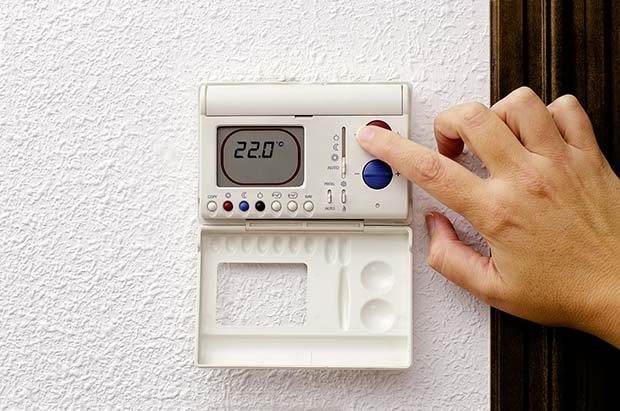If you’ve ever climbed the stairs to your home, you’ll no doubt have noticed that every second floor is a bit cooler than the one below. That’s because each time warm air rises from one level of your house to another, it loses heat. A properly maintained furnace or hot water heater will operate more efficiently and draw less from the atmosphere in order to maintain set temperatures. This is known as ‘ductwork efficiency.’ When you take care of your heating and cooling system by performing a tune-up every year or two, it helps ensure that your home’s systems run at peak performance through the season. Below we explain how often you need to do this and what goes into a home heater tune-up.
What is an HVAC tune-up?
An HVAC tune-up is a service performed by a technician on a furnace or air conditioner that helps maintain optimal performance and extended life of the equipment. It also ensures that your system is ready to support the upcoming season. For example, a technician can check your air filter, clean your filter media, and make any recommended repairs to your system if necessary. If you have a heat pump, they’ll be sure to check your condenser coil, too. Keep in mind that ductwork efficiency can be affected by changes in your home like a new addition, remodel, or major changes to the structure. Like any system, the more you use it, the more often you need to do an HVAC tune-up.
Equipment that goes into a furnace tune-up
In addition to the main furnace, a furnace service includes the fans and ductwork that direct the air throughout your home. As part of the service, technicians will check and replace any necessary components like blower motors and capacitors on the furnace’s board. They’ll also check and clean the system’s condensate drain pan, if applicable.
How often do you need to do an HVAC tune-up?
There’s no rule of thumb for this because your system’s needs will vary depending on its age, usage, and the season. The only way to know is by testing the system and seeing how efficiently it operates. If it’s a new system, you can perform an home heater tune-up within the first year of installation. If it’s an established system, you can do it every two or three years depending on your usage and the season. When in doubt, call a professional for advice.
What goes into a heat pump tune-up?
For a heat pump system, the technician will check the compressor and make sure it’s working properly. They’ll also check the condition of the system’s condenser and make any necessary repairs.
Heating vent service and repair
A heating vent service and repair is performed by the same technician who services your furnace and air conditioner. During this service they’ll make sure that your heating vents are connected to your system, free of obstructions like leaves or branches. In addition, they’ll check and repair any defects in the system’s piping or ductwork. This may include a leak in the system or leaks in the piping that connects the furnace to the system.
Cooling system tune-up for air conditioning
During a cooling system tune-up for air conditioning, the technician will check your system’s compressor and make sure it’s working properly. They’ll also check the condition of the system’s condenser and make any necessary repairs. During this service, technicians will also make sure that your cooling system’s plumbing is properly sealed.
Summary
When it comes to a home heater tune-up, experts say that less is more. Knowing when to do these services and how often is key to keeping your equipment running efficiently, safely, and free of defects. If you’re not sure when they need to be done, talk to a professional. They can help you maintain optimal efficiency throughout the season and make sure your system remains in good health. And when it comes to your furnace, air conditioner, or heat pump, a little preventative maintenance goes a long way. We’re only human, so we all forget to take care of our systems every now and then. With a little effort and a few tools, you can get your systems back into top shape in no time.
Click to Learn More!

